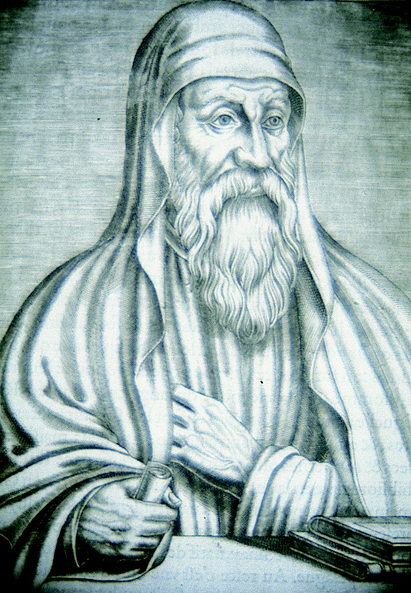Image Details

Scala/Art Resource, NY
Great minds do not always think alike. The early Christian scholars Origen (shown here) and Jerome (see Jerome, from a 15th-century painting by Domenico Ghirlandaio) both exerted a profound influence upon the development of biblical criticism. A prolific writer known for his highly influential biblical commentaries, Origen (c. 185–254) was educated at Alexandria, where he studied the Platonic ideas that would help shape his controversial methods of biblical interpretation. He also compiled the Hexapla (Greek for “sixfold”), which anticipated, by more than a thousand years, the polyglot editions of the Bible that have been so important to scholars since the 16th century. In his Hexapla, Origen set the Hebrew text of the Old Testament in one column alongside the parallel text from five different Greek translations. In this way, Origen gave centuries of scholars a tool for examining textual variations.
Although Jerome (c. 342–420) once referred to Origen as “the greatest teacher of the church since the apostles,” he later repudiated Origen’s allegorical style of interpreting scripture and, subsequently, became a bitter opponent of scholars who stood by Origenist teachings. Still, like the man he had once admired, Jerome was a formidable scholar who wrote numerous biblical commentaries. He also shared Origen’s linguistic and text-critical approach to the Hebrew Bible. Commissioned by Pope Damasus to produce a Latin translation of the Bible, Jerome refused to follow the practice of his contemporaries, who relied heavily on the Greek Septuagint version of the Hebrew Bible. Instead, he undertook a diligent study of Hebrew biblical manuscripts and produced his translation primarily from them.
